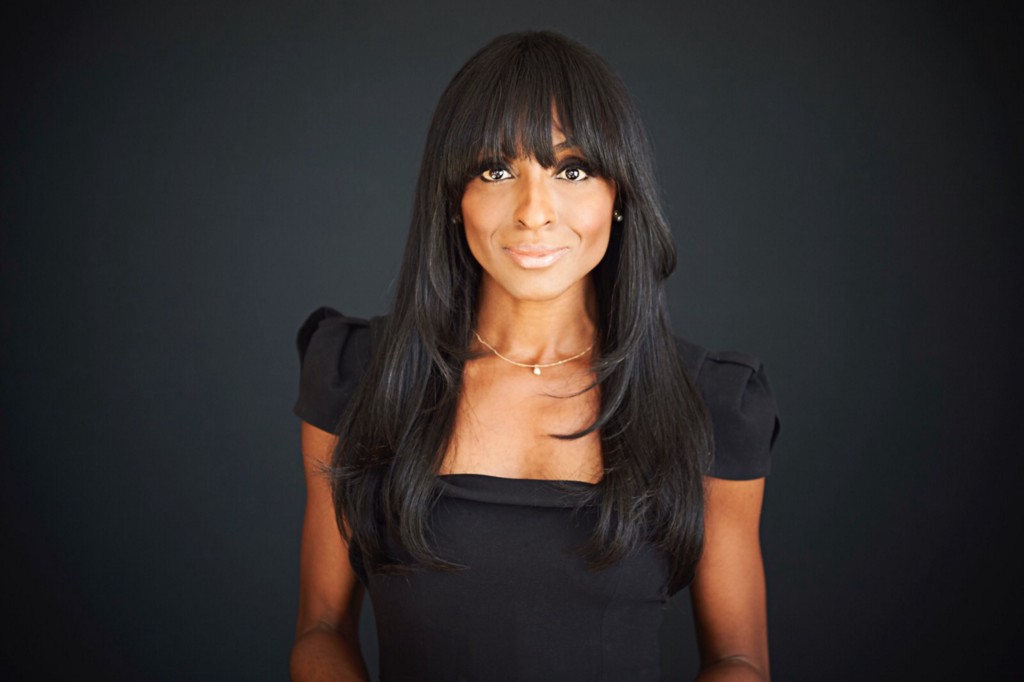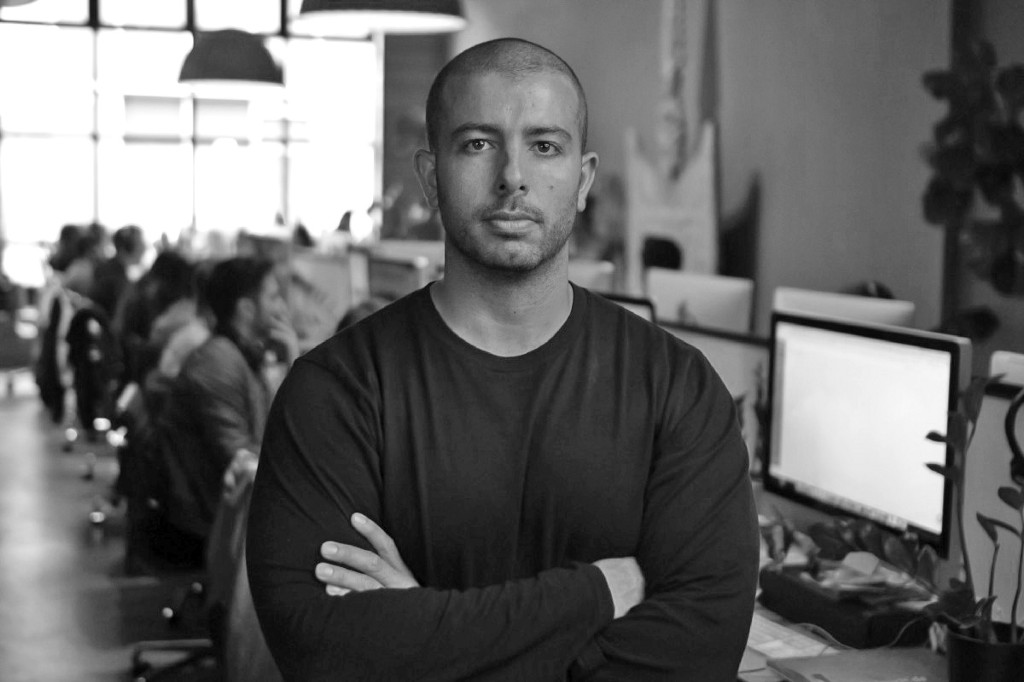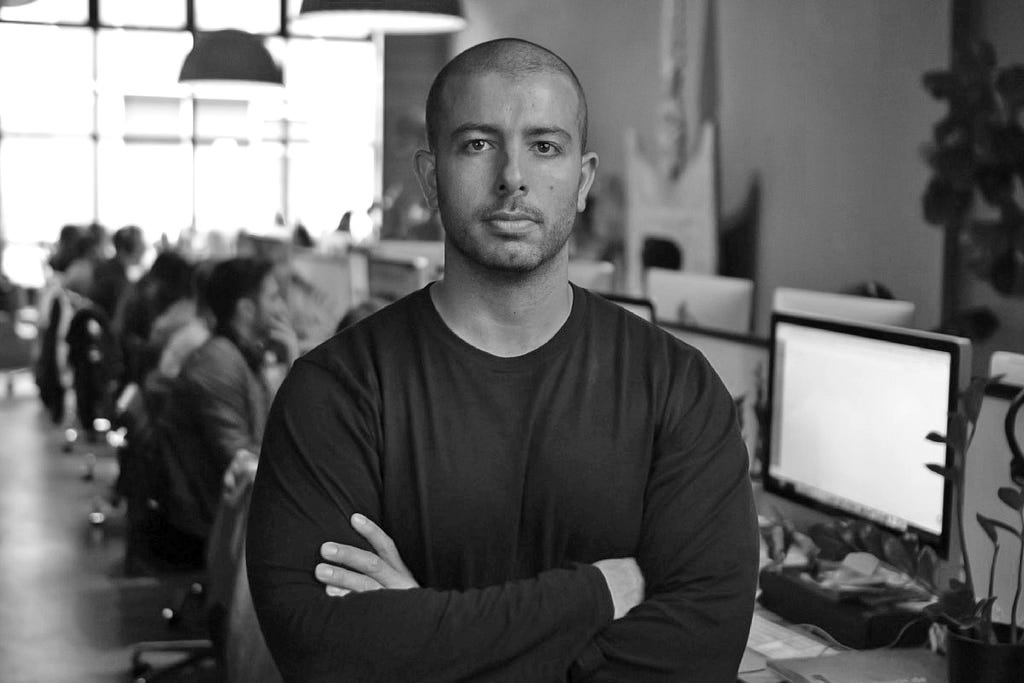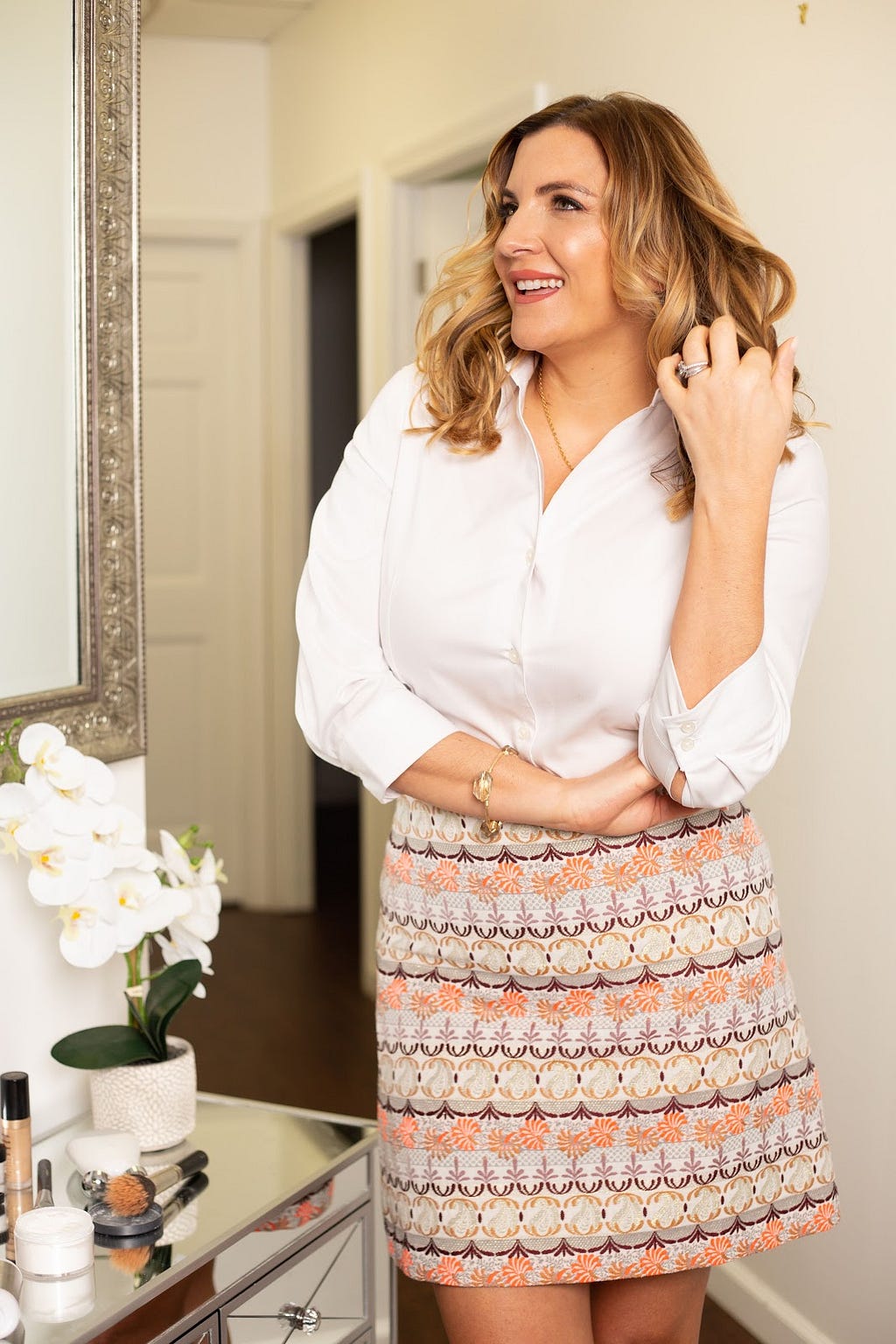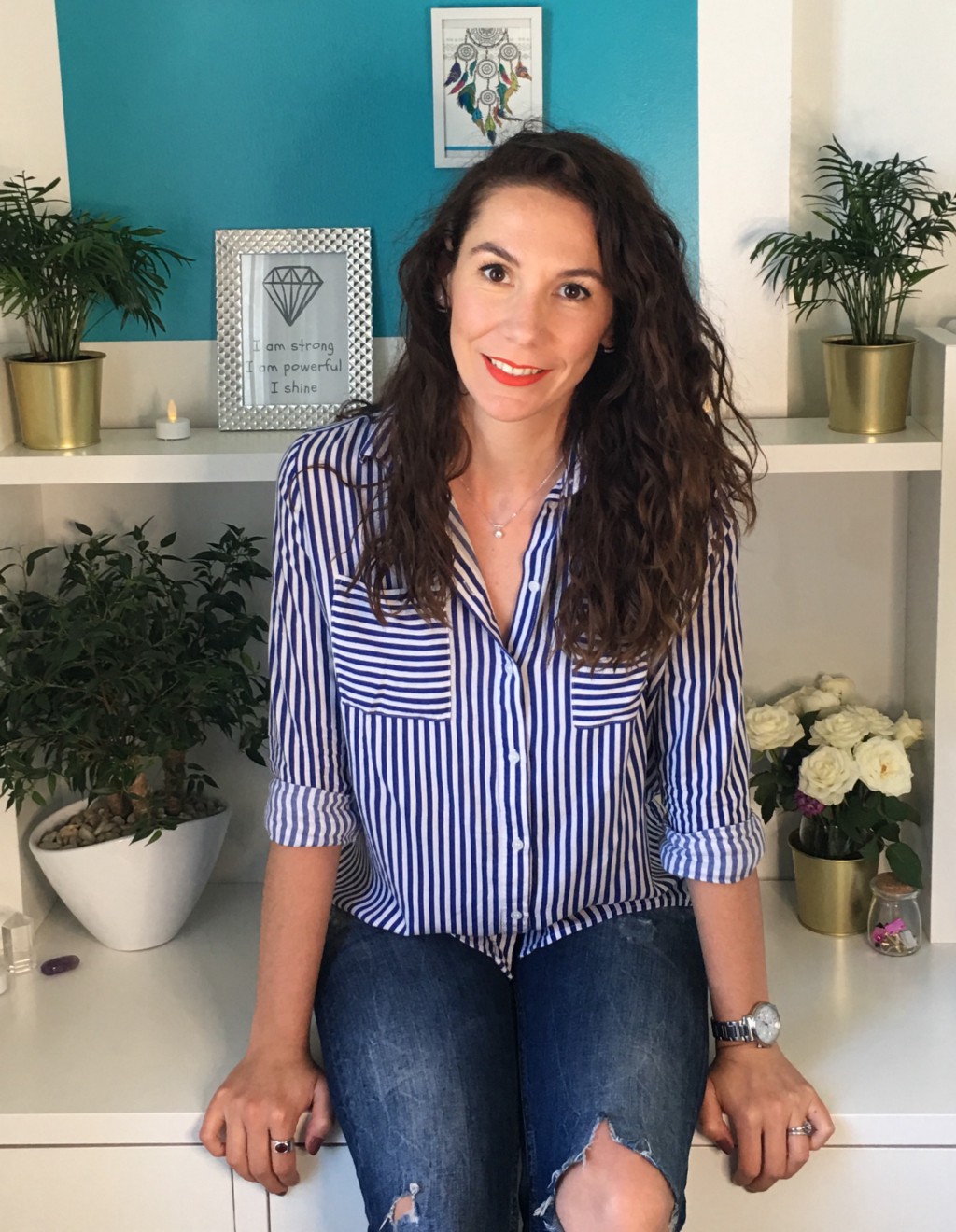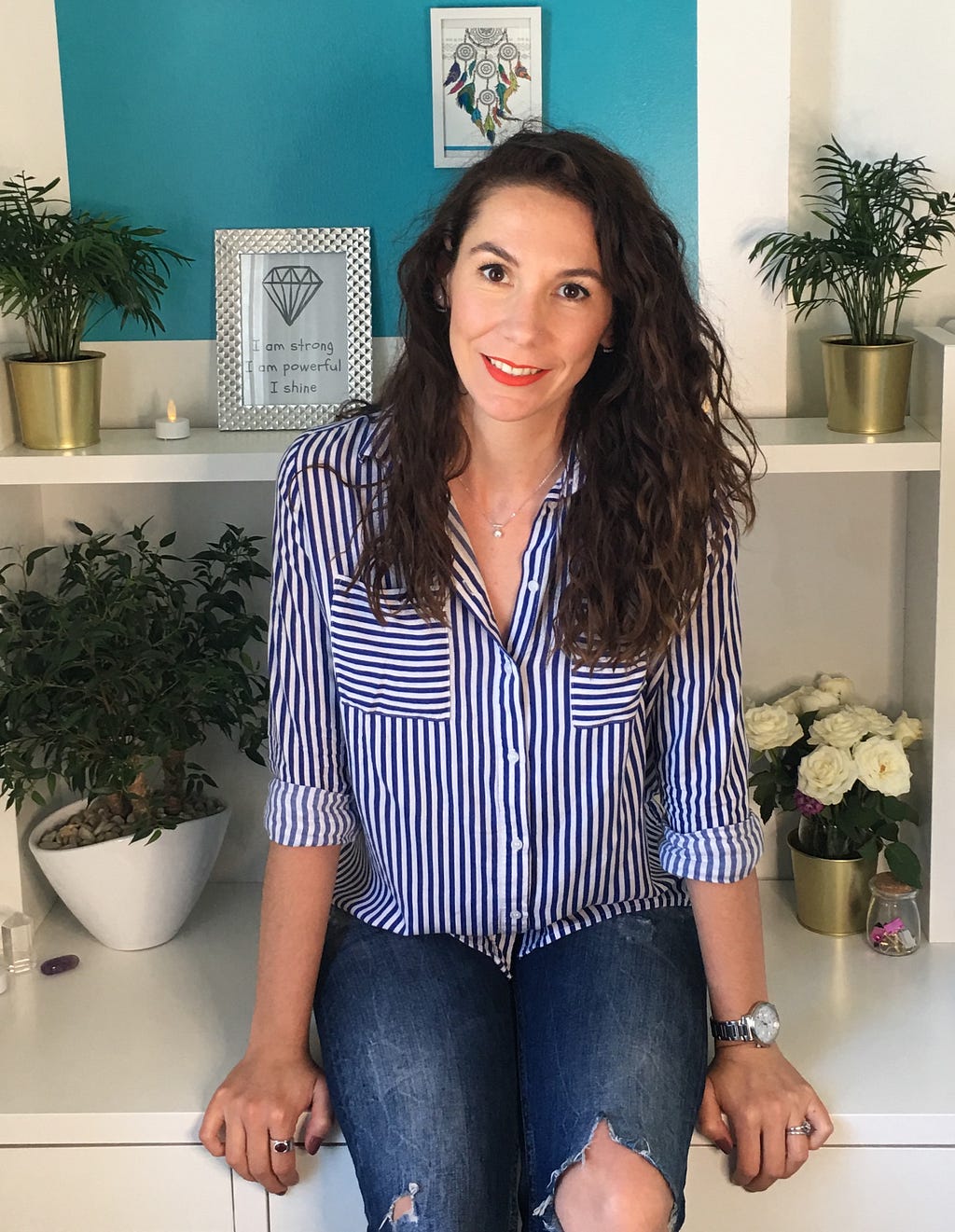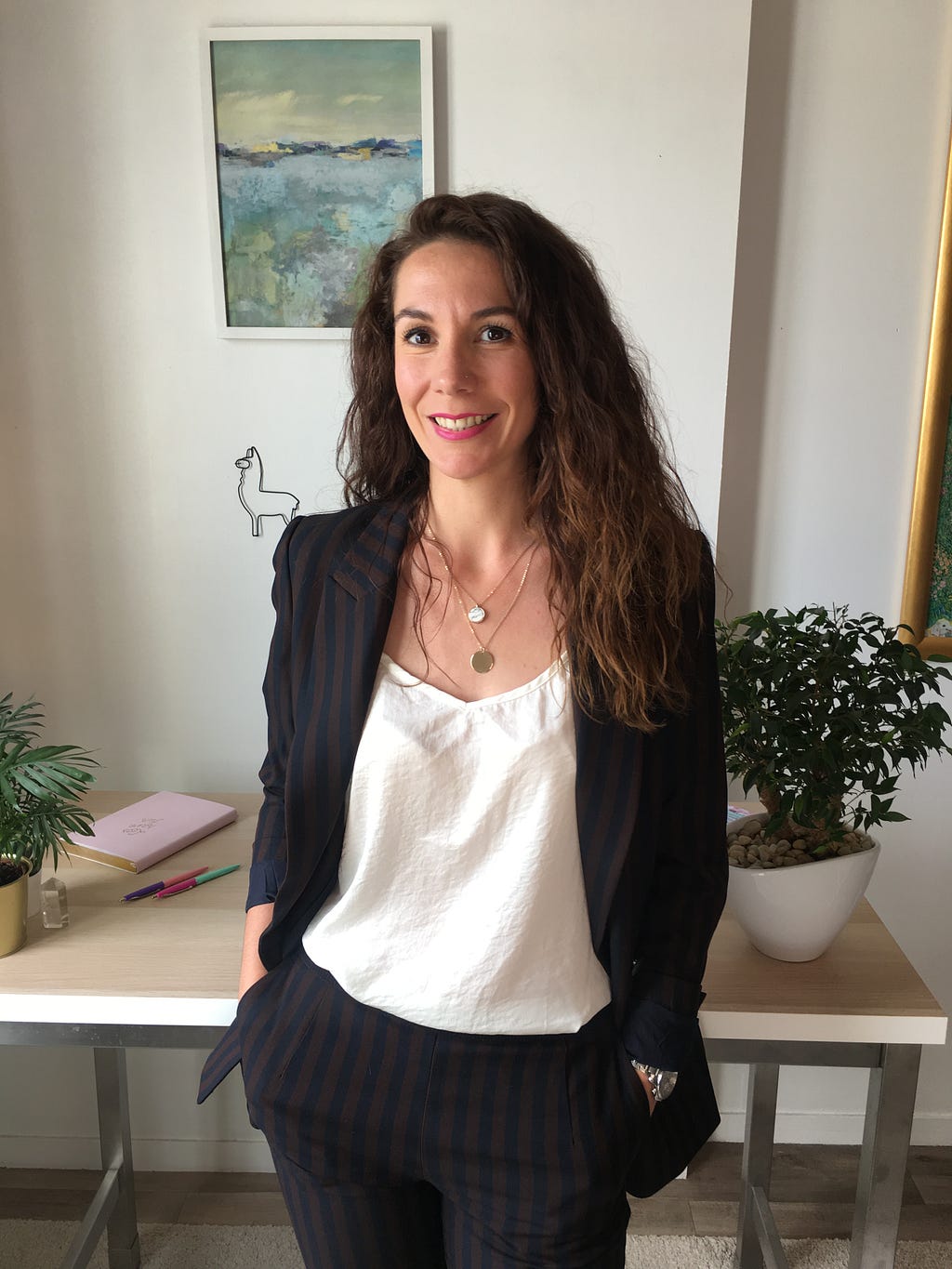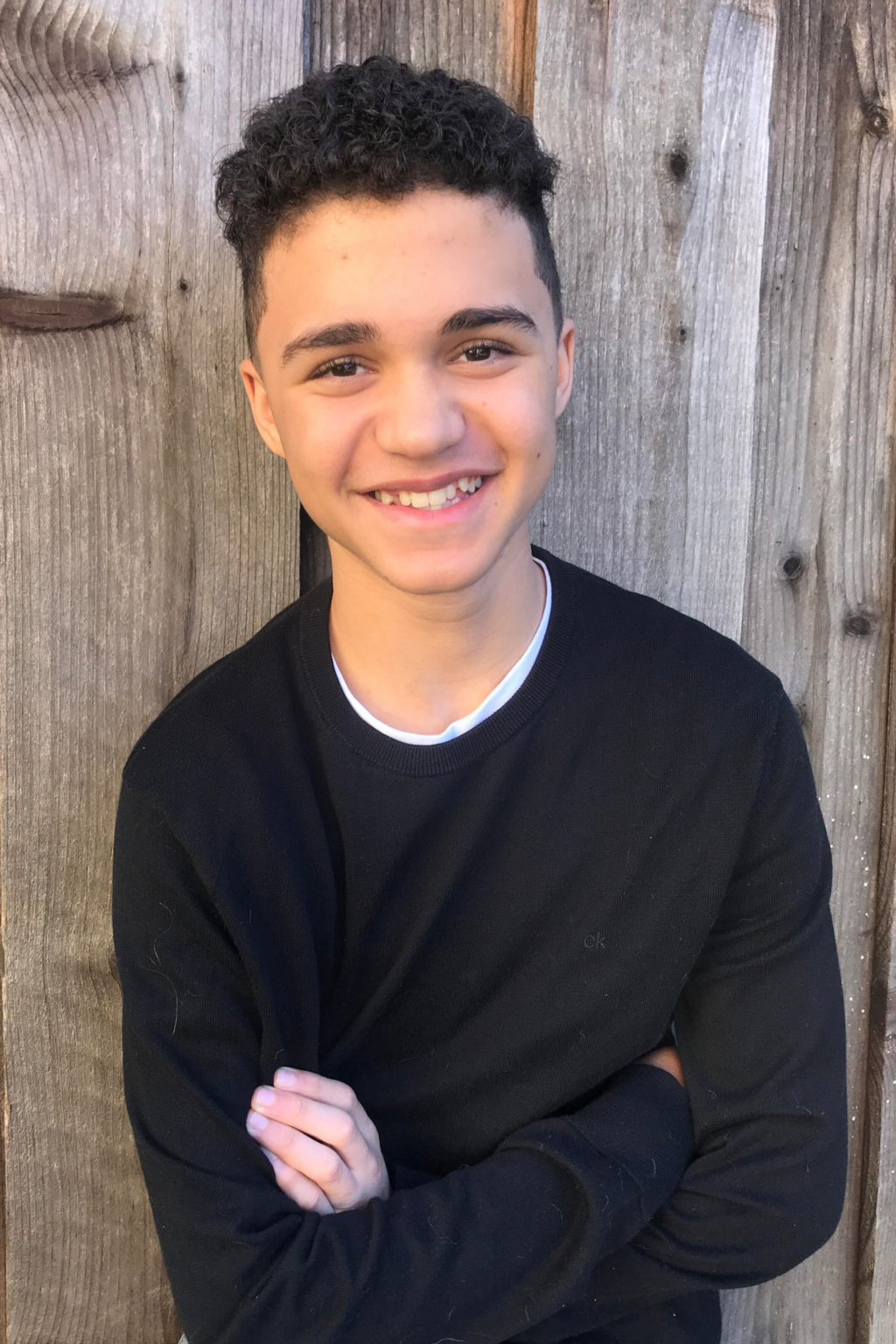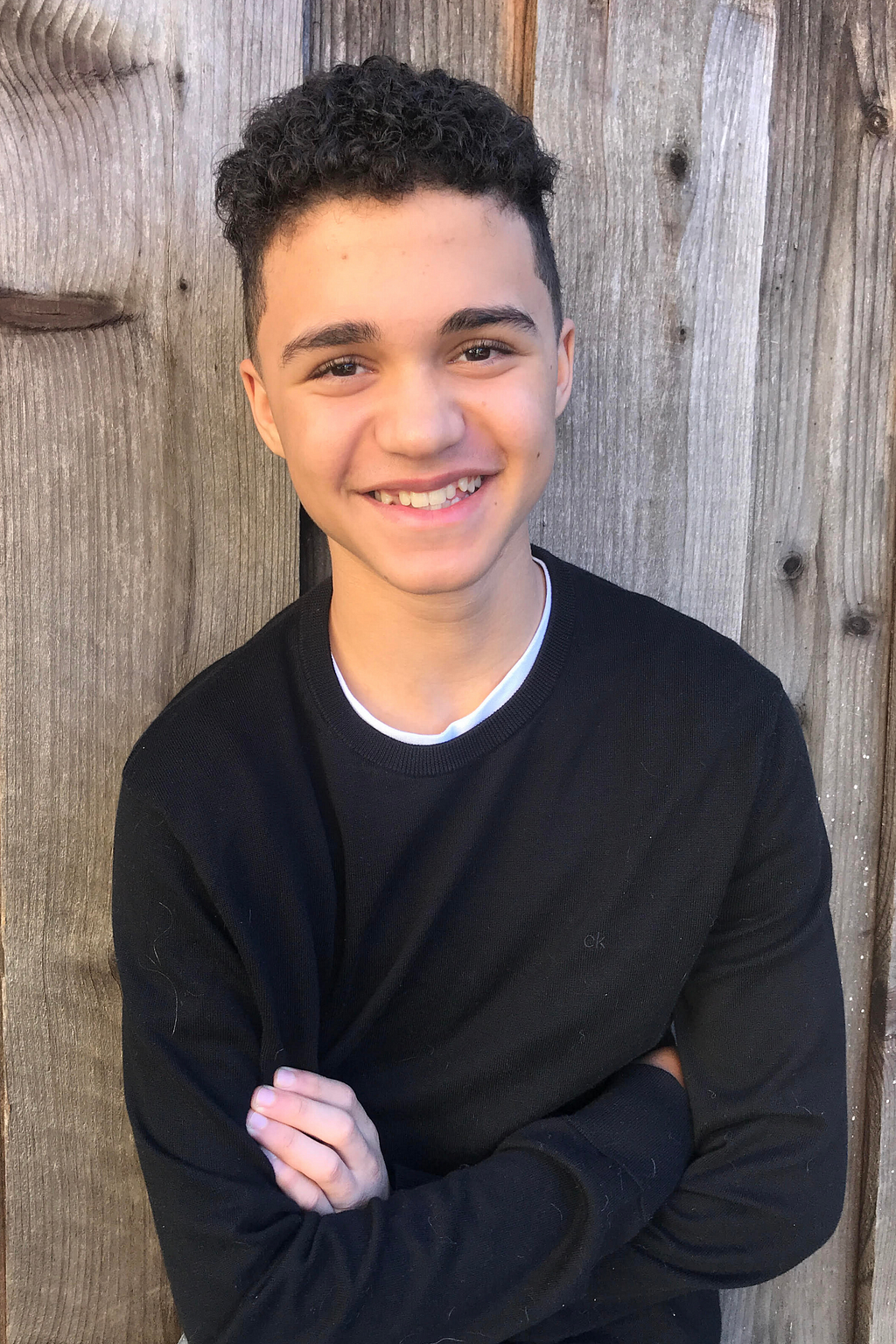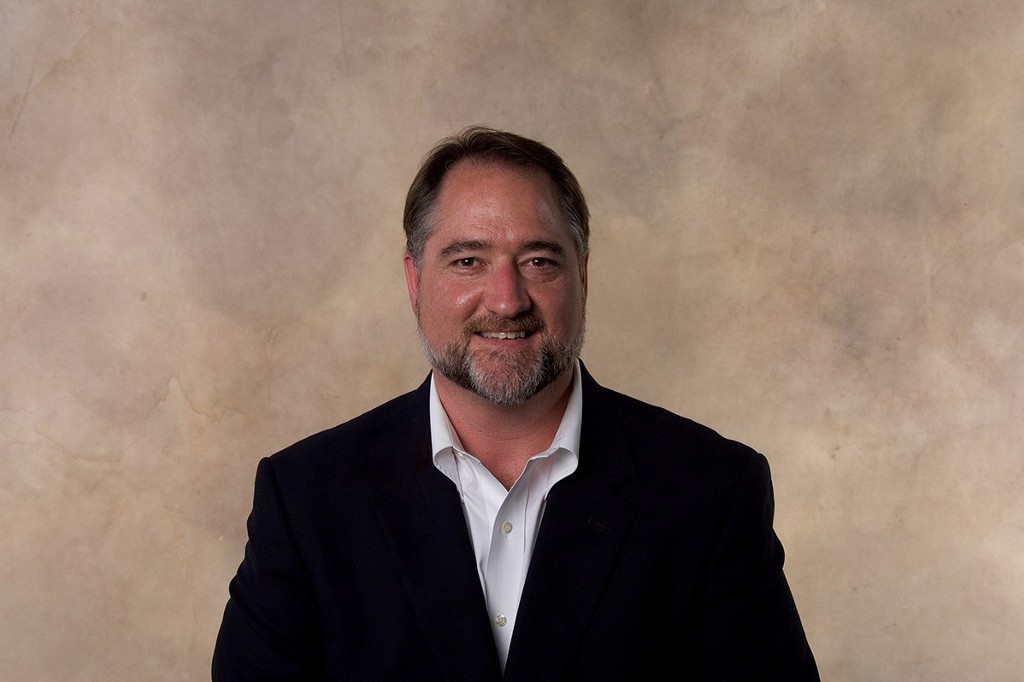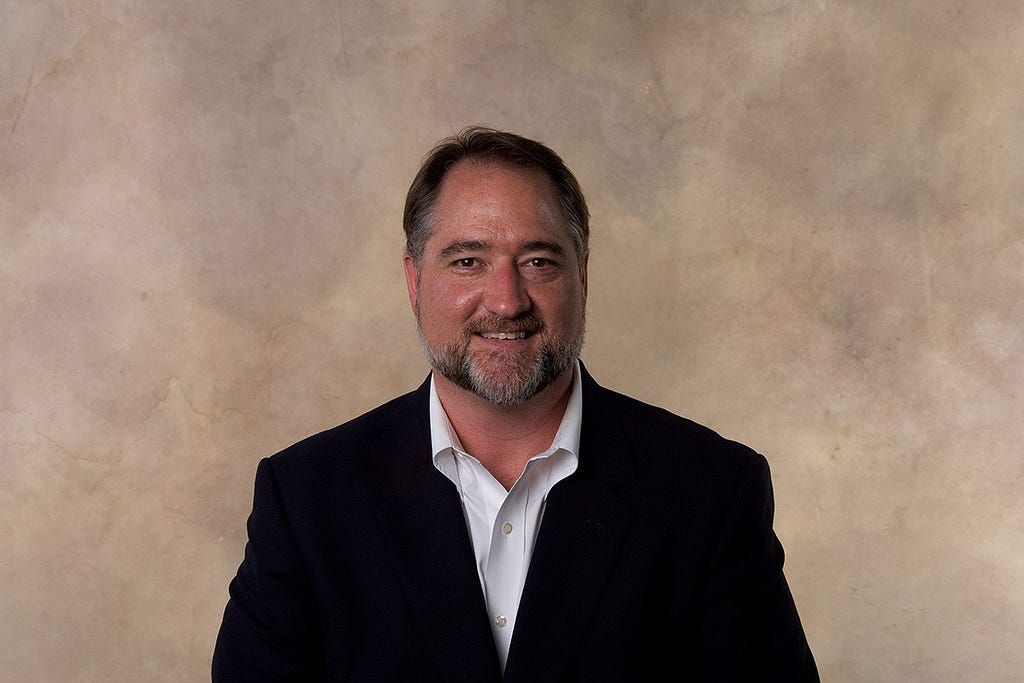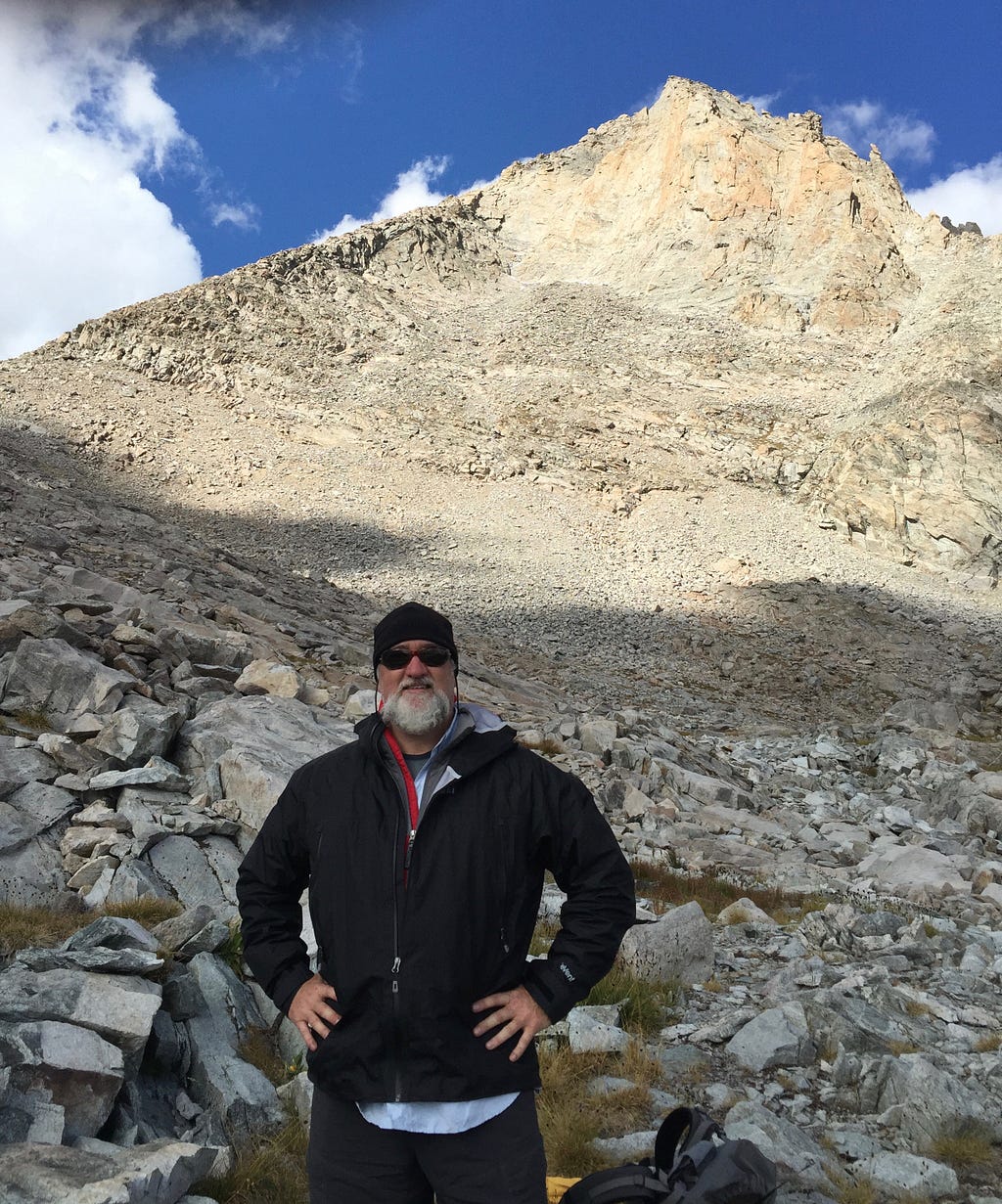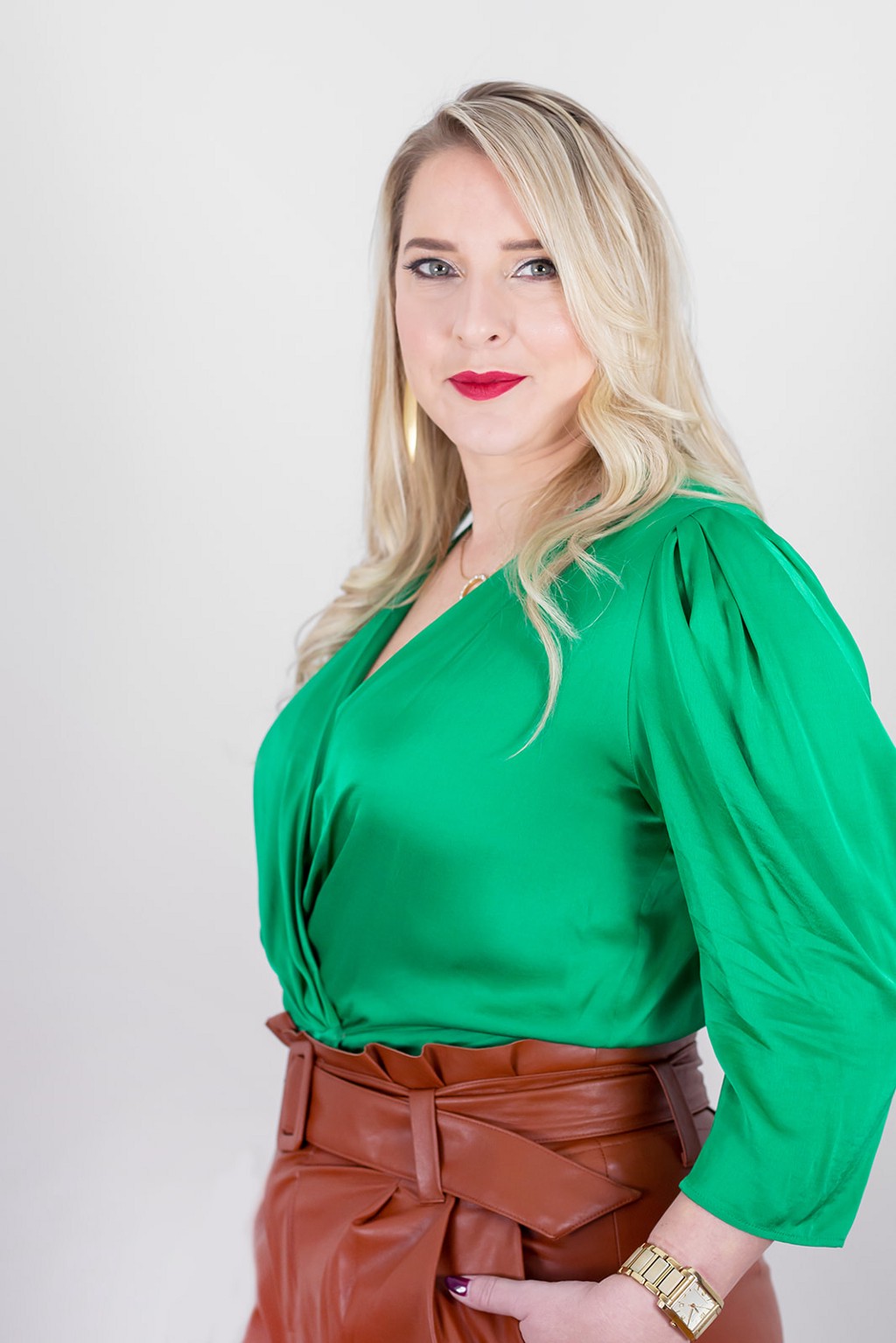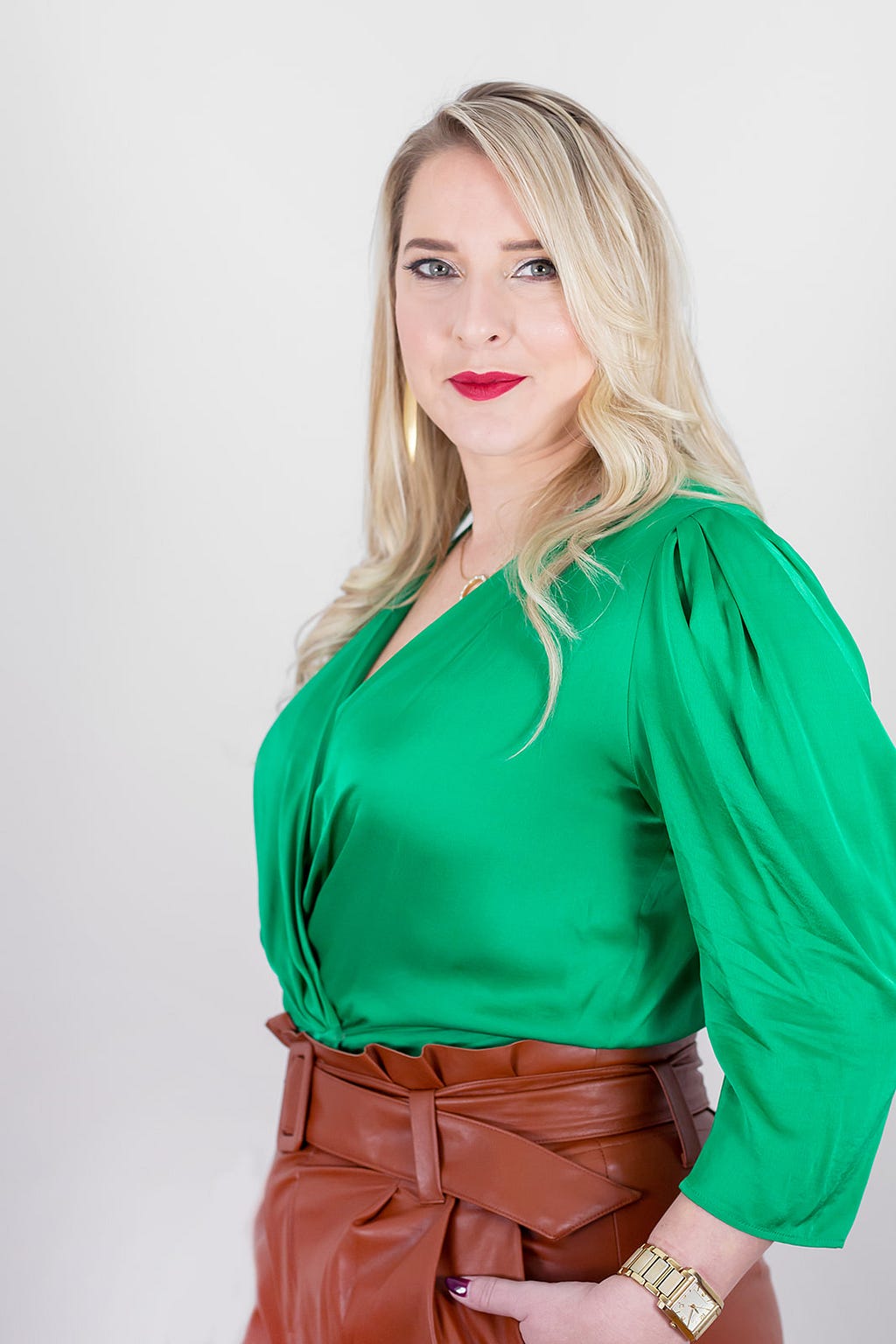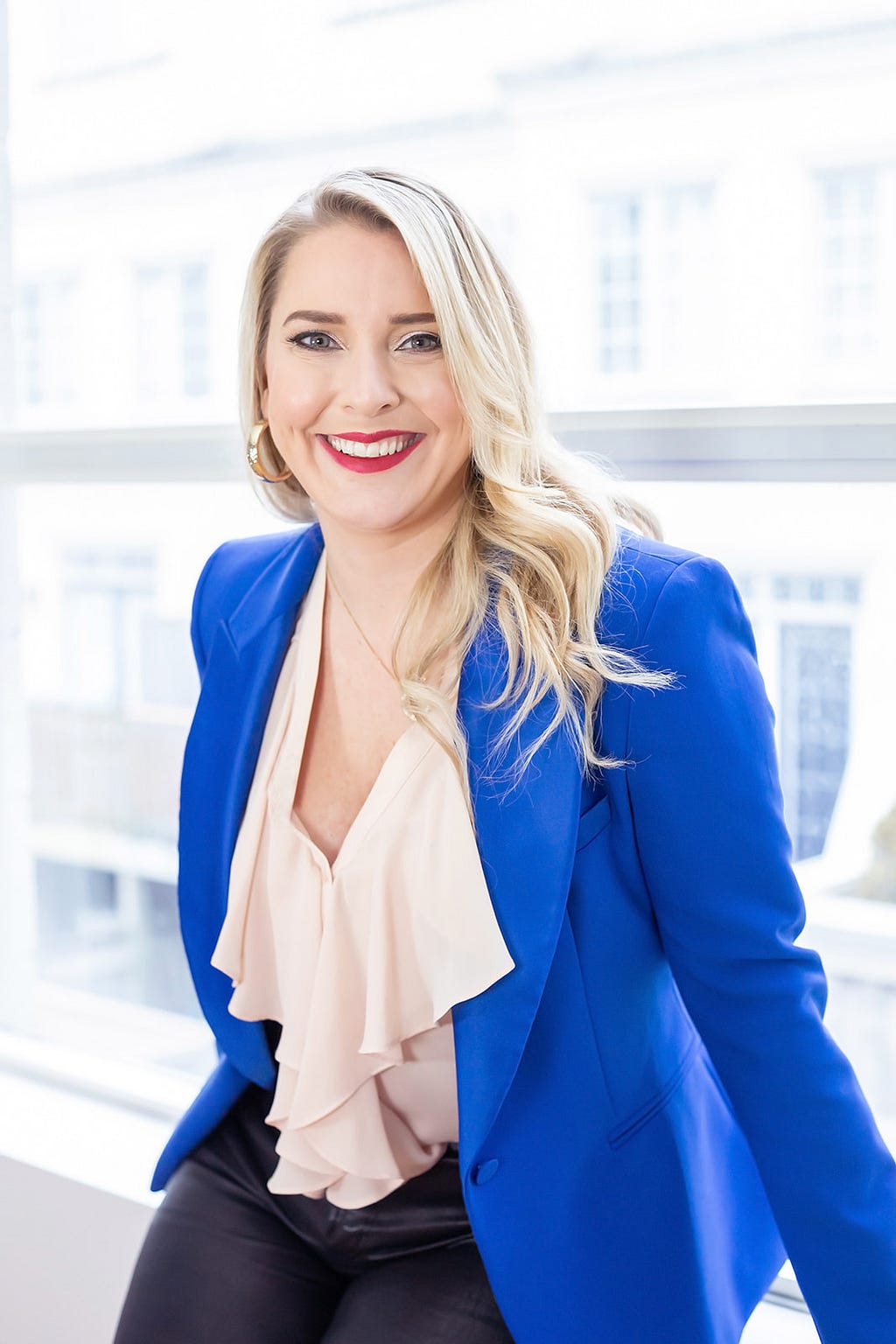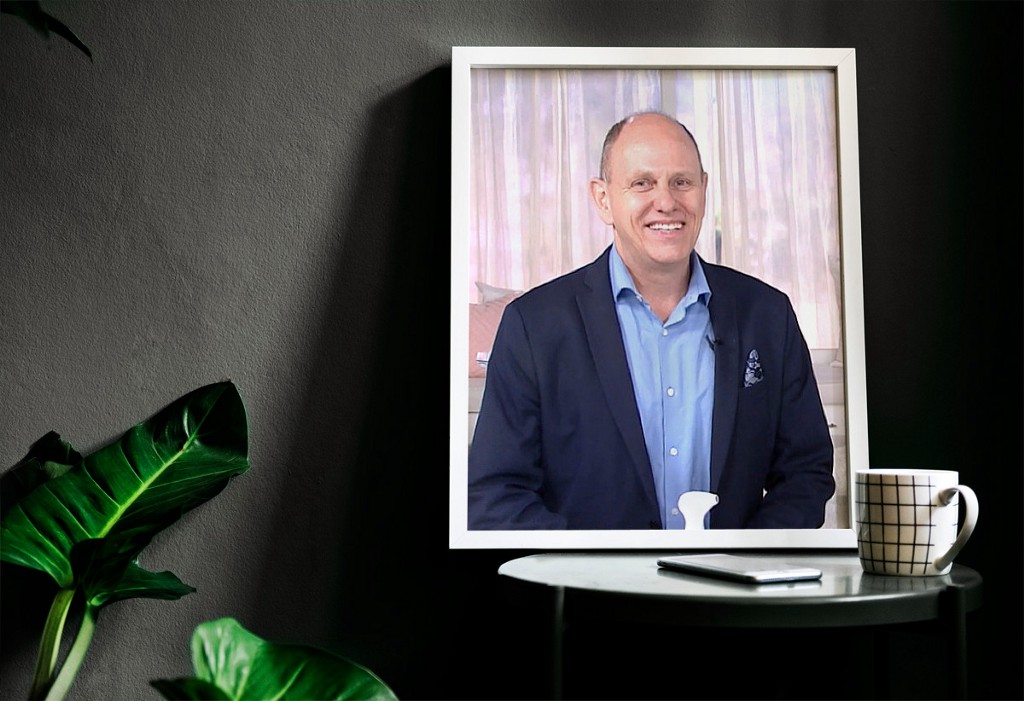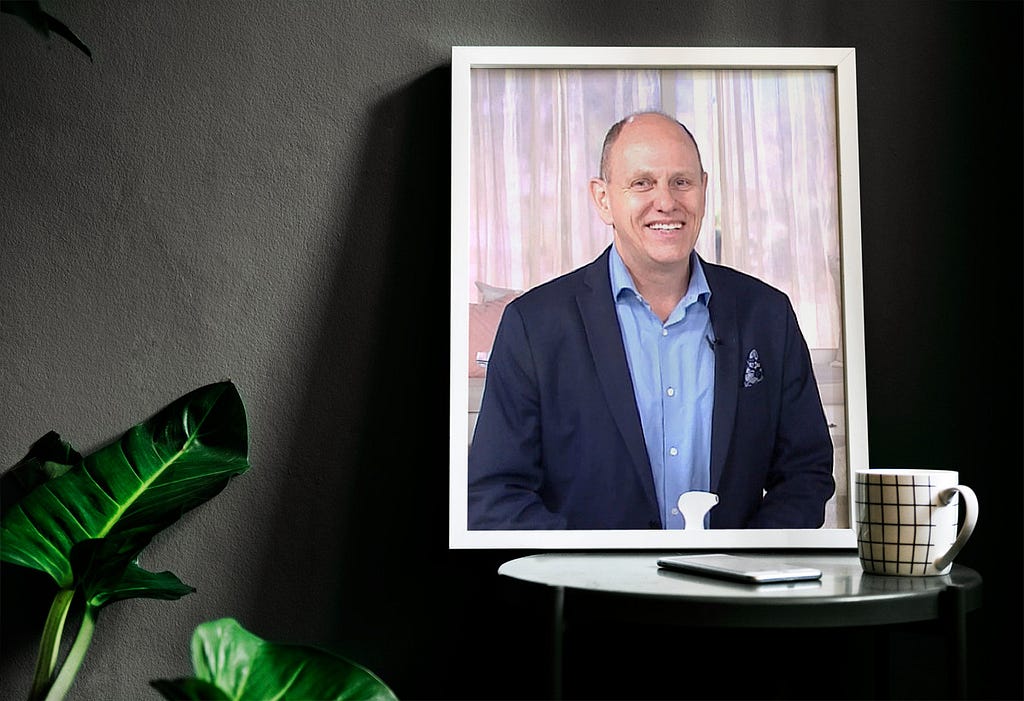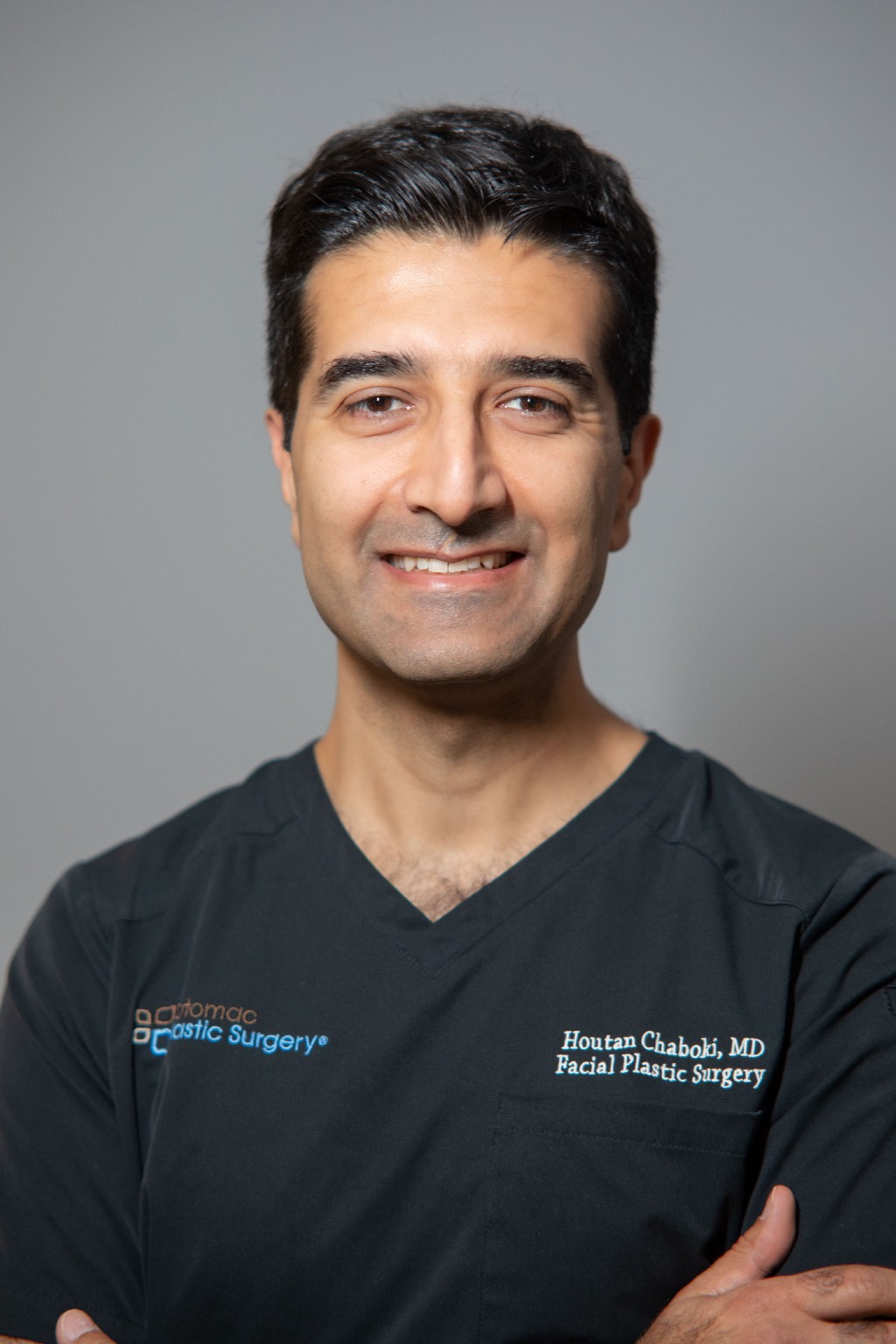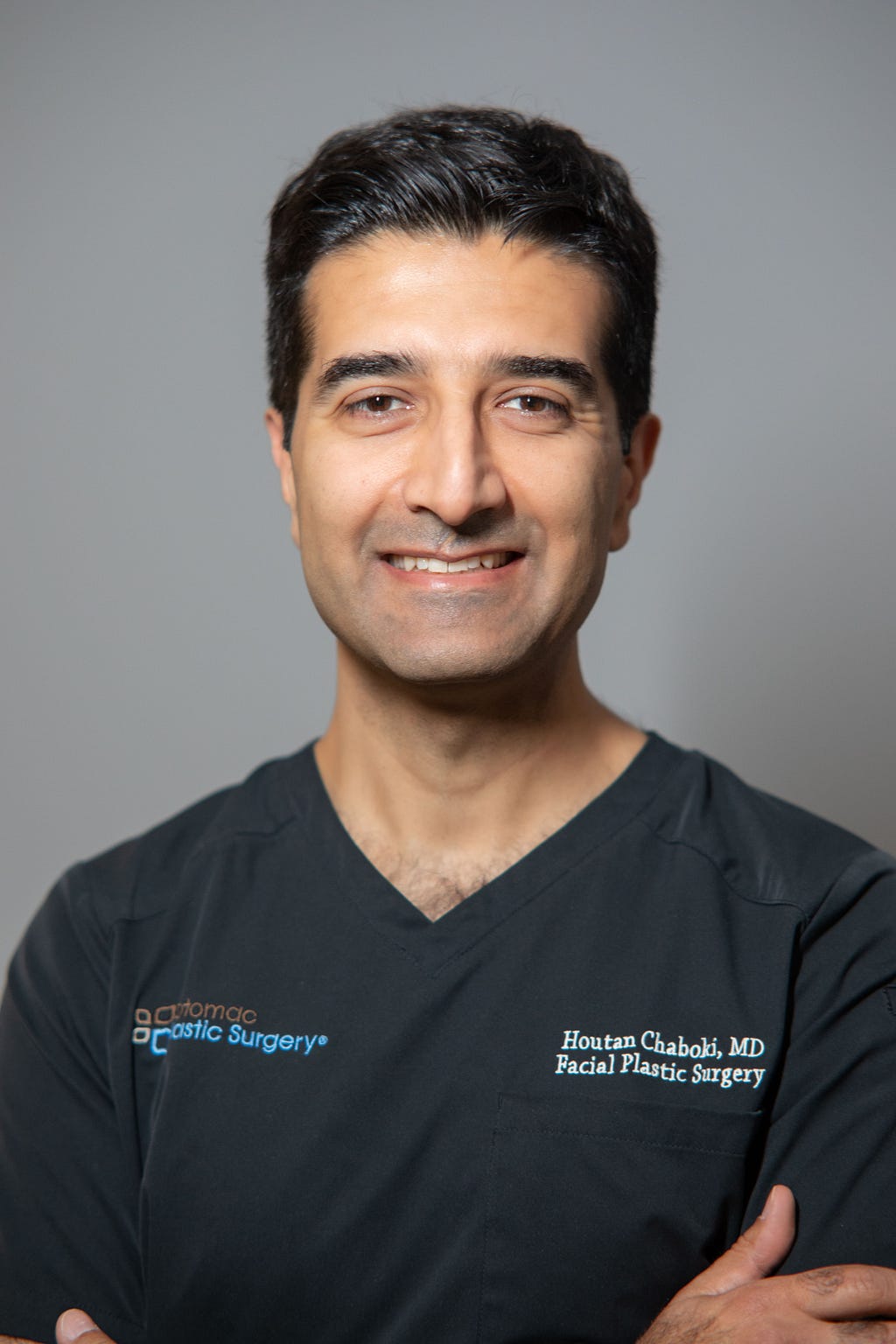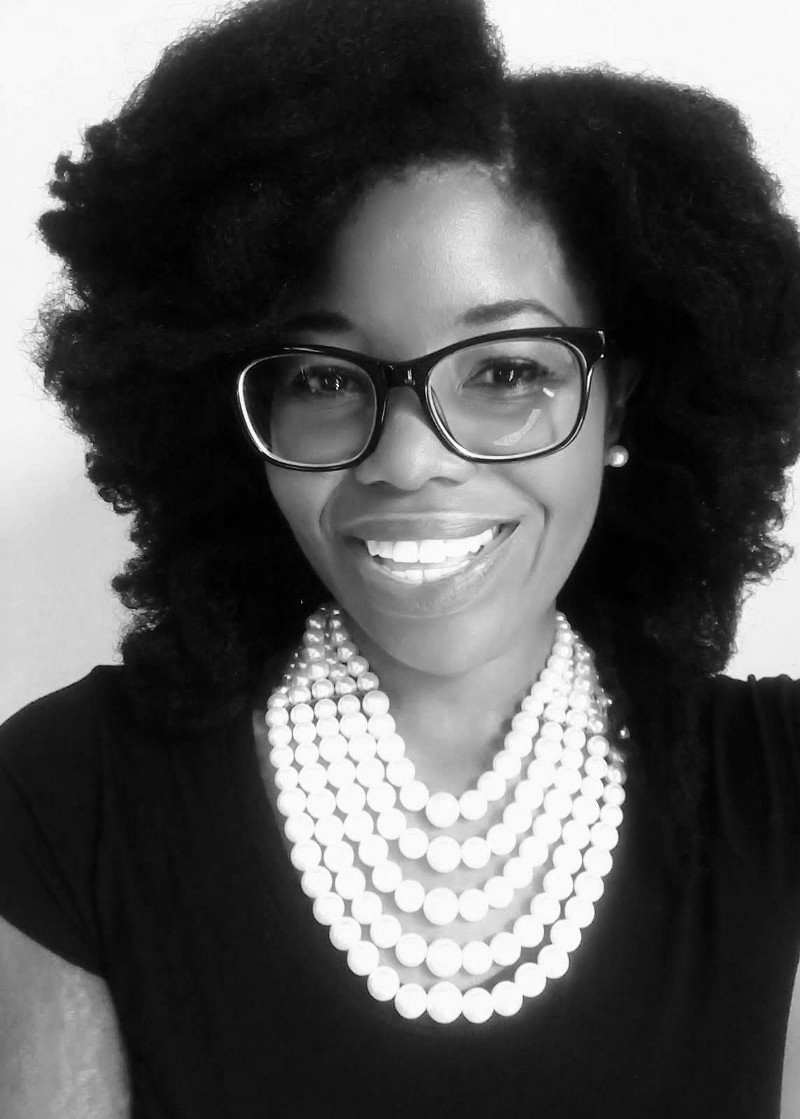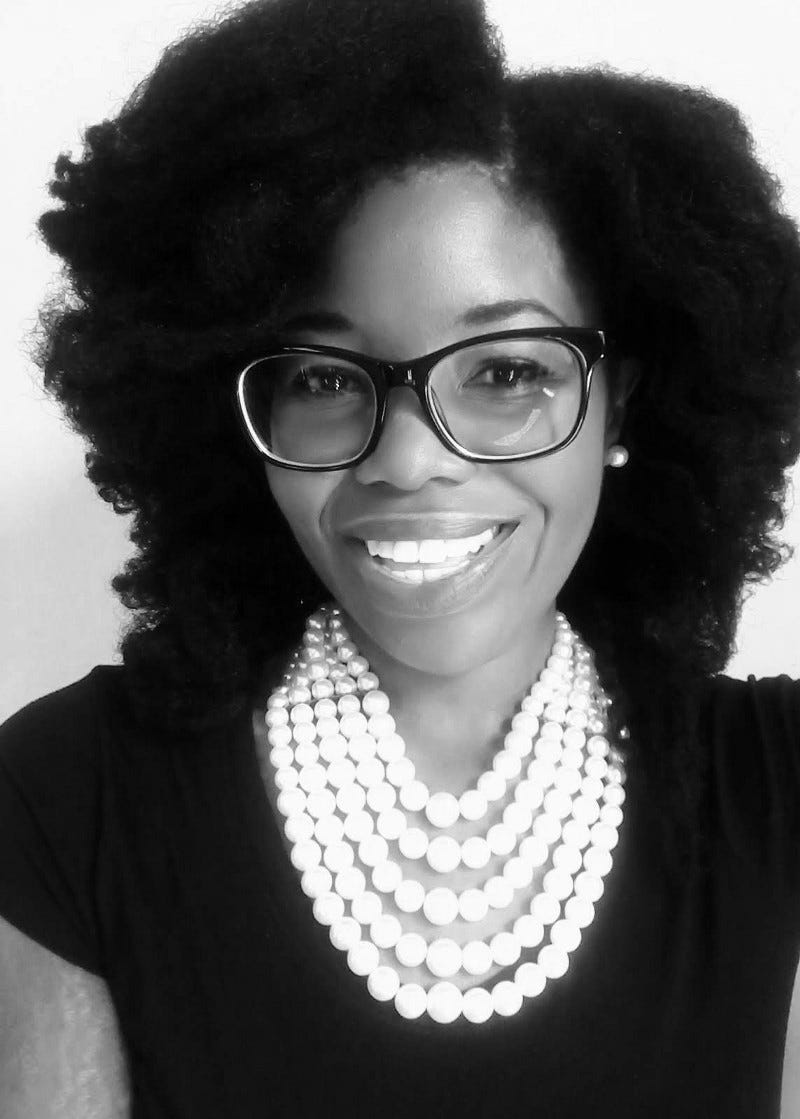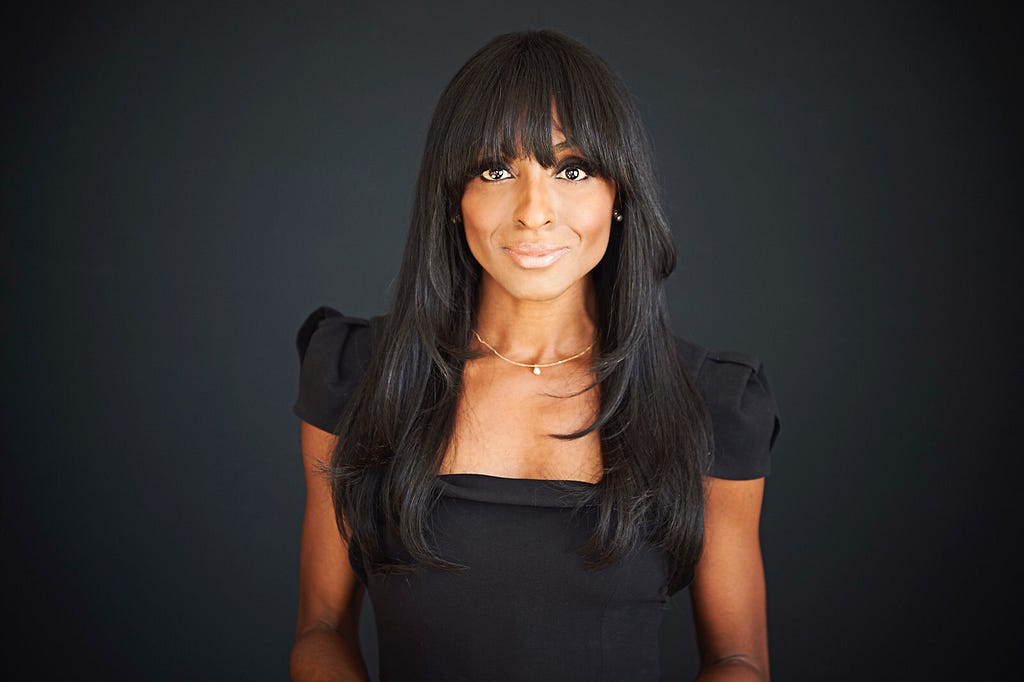
Social media can be an uplifting part of a person’s life. However, it has a dark side in the form of online bullying, especially when it comes to beauty. If we focus on our commonalities instead of our differences, it could lead to developing a more positive outlook and an appreciation for one other. It might even give us the courage to step in and help those who are being attacked online, and send the message that bullying is not acceptable.
As a part of our series about how technology will be changing the beauty industry, I had the pleasure of interviewing Sonya Denton.
Sonya Denton is a communications and media professional who works to give people the information they deserve to know so that they can make informed decisions in their lives. In 2019, she co-founded weDstll (we-distill), the mobile platform will connect values-based shoppers with like-minded people and natural beauty brands so that they can help each other achieve their goals. After spending a decade as a reporter and news anchor for two major Canadian broadcasters, Sonya knows what drives people to emotionally connect and support each other. She believes that it is the context of people’s life experiences that resonates, surprises, and highlights what we share in common. Sonya loves using the power of media, tech, and design to create emotional experiences that transcend cultures. During her time as a journalist, Sonya covered multiple stories in the areas of politics, crime, health, entertainment and business. One of her most notable stories was covering the Duke and Duchess’s of Cambridge first visit to the Calgary Stampede as a royal couple. She has also media-trained people on how to speak in front of the camera, and consulted in the area of marketing strategy.
Sonya holds a BA in Television and Radio Broadcasting from Ryerson University and an MBA from the Schulich School of Business in Toronto.
Thank you so much for doing this with us! Before we dive in, our readers would love to learn a bit more about you. Can you tell us a story about what brought you to this specific career path?
I lived in Germany for two years. While I was there, I studied the language at the University of Cologne as in a German class for foreigners or “Deutsch für Ausländer.” I was among many people from different parts of the world who all had amazing stories. From a Rwandan man, who fled his homeland during the genocide, to a teacher from Mexico who wanted to learn the language and study at the university. All these stories changed the way I saw people. We came from different countries but all of us were there for the same reasons: to learn the language, acquire a German language certificate, and attend the university. Growing up in Canada, we learn about different human experiences from TV, radio or online but it’s rare to meet people who’ve actually lived the harrowing experiences we see on the news. I learned through my time there that the difference between people is where we are born and the opportunities we are given. This was a life-changing experience, one I was compelled to share. I discovered I could do this through telling stories as a journalist.
Can you share the most interesting story that happened to you since you began your career?
I had always felt the need to prove why I deserve anything — a career position, an opportunity that would advance me, any form of success. I was a shy child battling a severe speech impediment; it took three years of speech therapy to resolve my stutter. Even though I was an introvert, I felt a self-imposed pressure to do more to stand out. I hadn’t realized how that experience had impacted my life until the day I was asked to model for a group of accomplished artists. I felt anxious thinking about having to sit for six hours while they sketched my likeness. When my wireless headphones failed to connect, I was left with only my thoughts and powers of observation. As I watched these artists do their work, I listened to the sound of their charcoal on paper and watched their faces as they studied me. After they were finished, I was overcome with emotion. I realized that I didn’t have to do anything to gain their approval, all I had to be was me. This moment was more liberating than I could have imagined.
Are you able to identify a “tipping point” in your career when you started to see success? Did you start doing anything different? Are there takeaways or lessons that others can learn from that?
Like many journalists, I started out working in smaller cities to cut my teeth and gain experience before moving on to larger markets. I had been working in Sault Ste. Marie for a year and a half and wanted to advance my career. I applied for jobs all over the country, but wasn’t able to land one. I knew that meeting news directors in person was a key step, so I contacted news directors in the cities I thought would be a good fit. I cultivated relationships with them by requesting feedback on my demo reels. I soon booked a trip to Winnipeg, Edmonton and Calgary where I spent two days meeting with the news directors I had previously contacted. Over the next year and a half, I was promoted to the main station in Sudbury where I both anchored and reported. Not long after, I applied for a position in Calgary and the news director I had met earlier offered me the job. This taught me the importance of building relationships and taking the time to meet people in person. I also learned to not let circumstances dictate the outcome. We can be assertive and have a positive impact on our situation no matter what position one holds.
None of us are able to achieve success without some help along the way. Is there a particular person to whom you are grateful who helped get you to where you are? Can you share a story about that?
That question is difficult to say without bruising a few egos, so I’ll consolidate my answer and say my family. They’ve been extremely supportive throughout my career, and although they might not have agreed with every decision I’ve made, they’ve always had my back. I’m blessed and I recognize that not everyone has that support. In the aforementioned story about me applying for jobs out of Sault Ste Marie, my Dad was instrumental in my meeting with the news directors face to face. I remember being so upset and he asked me “what needs to be done?”, I told him “I need to get in front of these people.” He agreed, and we made a plan which involved months of cultivating relationships. My weekend fell on a Tuesday and Wednesday, I flew in and out of Winnipeg on Tuesday and out of Calgary on Wednesday night. I was back at work on Thursday morning.
Ok super. Let’s now shift to the main part of our discussion. The beauty industry today has access to technology that was inconceivable only a short time ago. Can you tell us about the “cutting edge” (pardon the pun) technologies that you are working with or introducing? How do you think that will help people?
More people are shopping based on their values. It’s difficult for values-based shoppers to determine whether a brand matches their beliefs because of a lack of transparency around how a product is made and sourced. weDstll is a mobile platform that matches not only like-minded shoppers with each other but also with green beauty brands, based on their values, so they can work together to achieve their goals. As we iterate, machine learning will be added.
Keeping “Black Mirror” and the “Law of Unintended Consequences” in mind, can you see any potential drawbacks about this technology that people should think more deeply about?
We’ve seen how social networks can, in part, have a negative impact on our self-esteem. Researchers have found that users have a tendency to compare their lives to the lives of other people. This is the phenomenon of social comparison, and it is something that precedes our current technology. We can say that social media networks have exacerbated and driven the natural tendency to compare what we have with others to an extreme. This is a concern because weDstll is a social network, and I believe human emotions are difficult to predict, despite our best efforts. One of our advisors is a psychological researcher whose focus is on social interactions in digital environments and how we can possibly mitigate certain factors in order to create healthy online experiences. Technology has been instrumental in connecting the world and sharing a variety of experiences, and our advisor has been instrumental in helping account for how our users might interact with our platform.
Can you share 3 things that most excite you about the “beauty-tech” industry?
Three things that excite me about the beauty-tech industry are:
- Intelligent devices that can create personalized skincare routines on demand.
- Smart mirrors that analyze your skin and advise you on treatment methods.
- Trying on makeup virtually.
Can you share 3 things that most concern you about the industry? If you had the ability to implement 3 ways to reform or improve the industry, what would you suggest?
The three things that concern me most about the industry are:
- Lack of Transparency — There have been many studies showing that people want to know more about how their products are sourced and where they come from. This could be solved by increasing the levels of transparency so that consumers can trust that the products they buy meet their expectations.
- Mental Health — Social media can be an uplifting part of a person’s life. However, it has a dark side in the form of online bullying, especially when it comes to beauty. If we focus on our commonalities instead of our differences, it could lead to developing a more positive outlook and an appreciation for one other. It might even give us the courage to step in and help those who are being attacked online, and send the message that bullying is not acceptable.
- Creating a standardized definition of “Clean Beauty.” We need to address misleading information about what is and isn’t natural, especially as the Clean Beauty movement continues to grow.
You are an expert about beauty. Can you share 5 ideas that anyone can use “to feel beautiful”? (Please share a story or example for each.)
My five ideas that anyone can use “to feel beautiful” are:
- Beauty trends are always evolving, so what’s here today could be gone in a few years. I remember when I was younger, people teasing me that my lips were too full. Need I say more.
- I don’t think many of us take enough time to celebrate the things we love about ourselves. Be okay with saying: “I love my cheekbones” or “I’ve got dimples that you could drop a marble in.”
- Choose a digital photo of yourself that you love and make a physical print of it. Hang it where you’ll see it every day or simply use it as the wallpaper on your smartphone. Remind yourself how great you are.
- Do something special that is only for you and if you can, turn off your phone so you can fully enjoy it. I love salt baths. I light candles, listen to music, pour in lavender essential oils and just rest.
- When someone pays you a compliment, thank them. This can be difficult for some as politeness dictates that returning the compliment is required. But it’s ok to take the compliment and savor it, as it was meant for you in the first place.
You are a person of great influence. If you could inspire a movement that would bring the most amount of good to the most amount of people, what would that be? You never know what your idea can trigger. 🙂
Consumers are becoming increasingly aware that every time they make a purchase, they leave an impact. More consumers are opting to leave a positive one. I believe that as beauty companies become more transparent and people clamour for more knowledge about what they’re buying, there’s an opportunity for a win/win situation where both sides can benefit.
Can you please give us your favourite “Life Lesson Quote”? Can you share how that was relevant to you in your life?
My favourite “Life Lesson Quote” is by Mark Twain: “The two most important days in your life are: the day you are born and the day you figure out why.”
I’ve done a great deal of soul-searching over the years in my quest to truly discover myself. My love of “The Story” has been with me since I was young. When I learned the importance of that, it drove me to become a journalist. And now, it continues to guide me in the realm of technology.
How can our readers follow you online?
You can reach out to us through our website at https://wedstll.com or follow us on Instagram @weDstll and Facebook at: facebook.com/weDstll/
Thank you so much for joining us. This was very inspirational.
The Future Of Beauty: “Shop For Beauty Products Based On Your Values” With Sonya Denton of weDstll was originally published in Authority Magazine on Medium, where people are continuing the conversation by highlighting and responding to this story.


